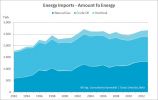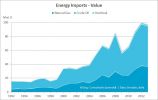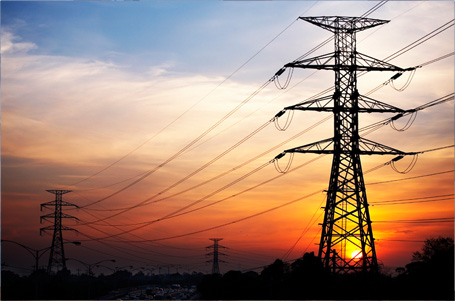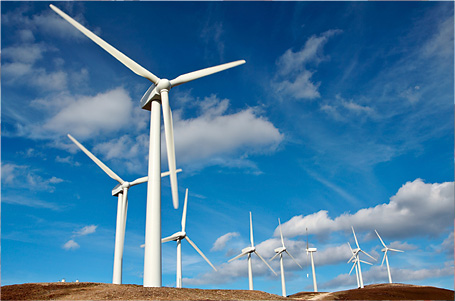2014.02.02
Energy Imports
Germany - like many other countries - relies strongly on energy imports. Cost of imports from energy carriers burden trade balance annually by nearly 100 billion Euro - with continuous upward trend.
Germany depends on imports of energy carriers to a high degree: Natural gas is importet for more than 90 %, for crude oil it is nearly the total demand. In the meantime even hardcoal is imorted for 80 %. And Uranium for operation of nuclear power station originates completely from foreign countries. Domestc mining delivers mainly softcoal for electricity production. However, even though new production record of softcoal in 2013 has observed, regeenrative energy carriers follow at short distance - (More than) Sun, Wind and Hydro is present in any country and need not to be imported.
From energy imports, not only political dependencies result, but also tangible economic consequences. While during past two decades the amount of energy imported "only" increased by 50 %, expenditures for import of different primary fuels raised at last up to 100 billion Euro. This is six times more than 20 years before. By its strongly export-oriented economics, Germany is comparatively well positioned. The currency crisis of the Euro, caused by dept crisis in different countries of the eurozone, is closely associated with continuous increasing expenditures for energy imports.


At the first glance, the small share by hardcoal from energy imports stands out. - Anyway, hardcoal fired power plants delivered 20% of electricity production in 2013. Expentidures for imports of hardcoal range below 3 % of all energy imports. The higher the significance of drude oil and natural gas is. Thus it becomes considerably more clear that electricity production is of less relevance for the mayority of energy demand than sectors heat and mobility. Supplies of uranium are not depicted in the graphs. Although Germany is still importing raw uranium ("yellocake"), since 2011, the year of the nuclear accident in Fukushima, Germany is net-exporter of enriched uranium.
In consequence, from examination of import statistics, two fundamental implications have to be drawn:
- an erngy transistion which partially focusses electricity production, could hardly be called such
- the sharpening macro-economic dimension of energy imports is massively undervalued due to constricted consideration of (micro)economic aspects
An indepth reflection of this topic can be retrieved in the textbook Rethink.






